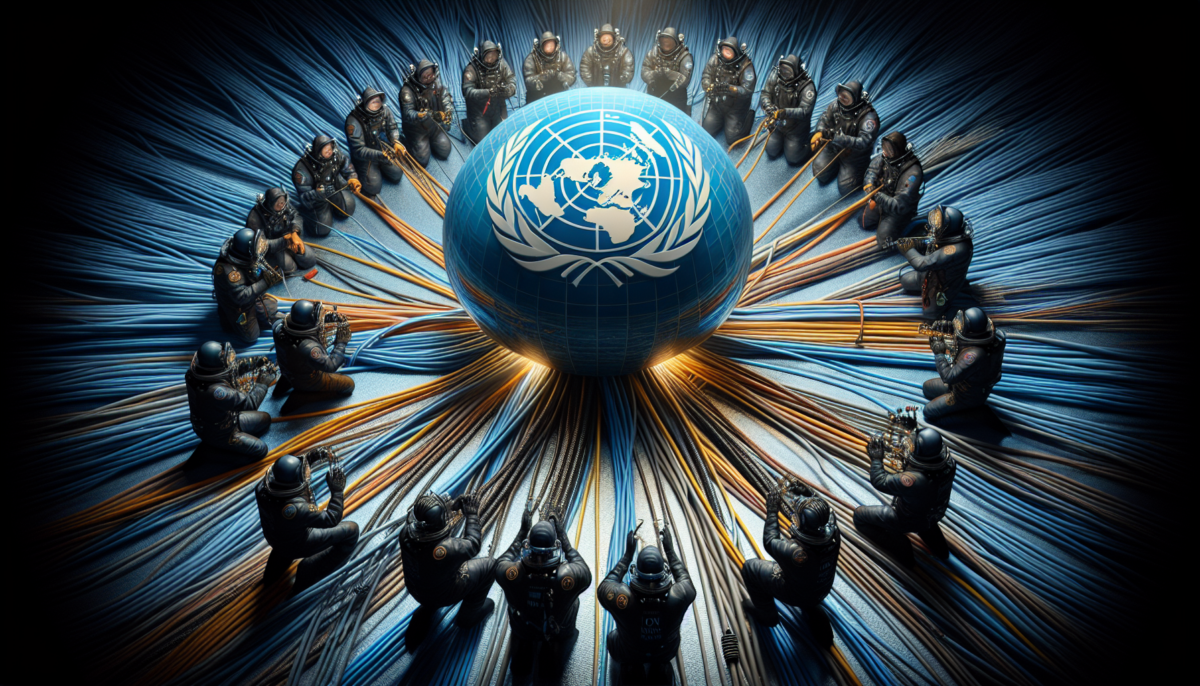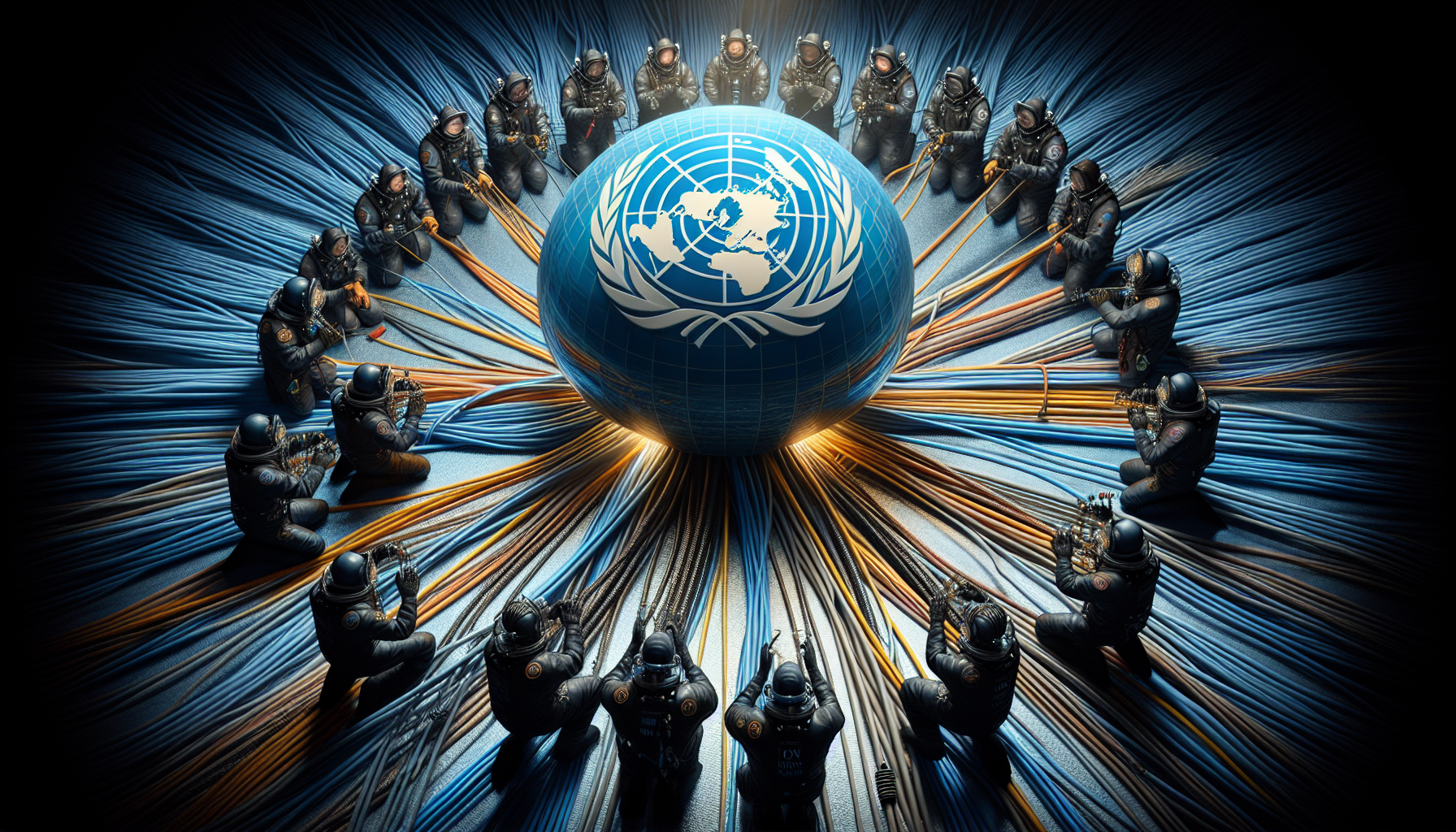“UN Acts to Protect ‘At-Risk’ Submarine Cables”
We independently review everything we recommend. When you buy through our links, we may earn a commission which is paid directly to our Australia-based writers, editors, and support staff. Thank you for your support!

The UN’s Proactive Steps to Protect Submarine Cables

Brief Overview
- Over 99% of international data is transmitted through submarine cables, which are fundamental to global communication and economies.
- The United Nations’ International Telecommunication Union (ITU) has established a new committee to bolster cable resilience.
- In 2023, 200 cable outages were documented due to natural disasters, accidents, and suspected sabotage.
- Impaired cables can cut off entire areas, as demonstrated by Tonga’s internet blackout lasting a month in 2022.
- This new advisory committee comprises 40 specialists from the telecommunications, governmental, and private domains.
- A subsequent summit is planned in Nigeria for February to further these initiatives.
Importance of Submarine Cables
Submarine cables serve as the hidden foundation of the internet, facilitating everything from emails and streaming services to international financial exchanges. Carrying more than 99% of global data, they represent critical infrastructure for authorities, enterprises, and individuals across the globe. Any disruption to this network can have extensive consequences for both economies and communities.
Risks Facing Submarine Cables
Submarine cables encounter numerous threats, including natural disasters such as tsunamis, human errors like fishing or anchoring incidents, and intentional sabotage. In November, two cables were damaged in the Baltic Sea, emphasizing the fragility of these networks. ITU statistics show that around 80% of cable interruptions stem from accidents or natural events, while the remaining cases raise alarms about potential security risks.
The UN’s Newly Formed Advisory Committee
The International Telecommunication Union (ITU), a specialized agency of the UN, has initiated the International Advisory Body for Submarine Cable Resilience. This team consists of 40 international specialists from both public and private sectors and aims to enhance the resilience of submarine cables through better design, installation, and maintenance practices. Additionally, the committee will work to speed up the repair process by simplifying permits and protocols.
Handling Interruptions and Future Conferences
While the ITU does not probe into sabotage, the establishment of this advisory committee highlights the critical nature of addressing various disruptions. By ensuring quicker repairs and enhancing resilience, the group aspires to alleviate the effects of incidents on global communication. The upcoming discussions will be held at a conference in Nigeria in February, where experts will hone strategies to protect this essential infrastructure.
Consequences for Remote Areas
The repercussions of cable damage are particularly detrimental for isolated regions. A notable instance is Tonga, which faced a full internet blackout for a month in 2022 following a tsunami that affected a key submarine cable. For these areas, rapid service restoration is not merely a technical requirement but crucial for economic and social stability.
Conclusion
The UN’s efforts to safeguard submarine cables represent a vital advancement in strengthening the global communication framework. As threats to this essential infrastructure grow, the new advisory committee aims to enhance resilience, accelerate repairs, and protect economies and societies across the globe. The forthcoming summit in Nigeria will further reinforce international collaboration to tackle these challenges.
Q&A: Insights into Submarine Cable Protection
Q: What makes submarine cables so essential?
A:
Submarine cables transmit over 99% of global internet traffic, making them crucial for contemporary communication, business activities, and governmental operations.
Q: What are the causes of submarine cable damage?
A:
Damage often arises from natural disasters (such as earthquakes, tsunamis), human actions (including fishing, anchoring), or intentional sabotage.
Q: How does the ITU’s new advisory committee assist?
A:
This committee prioritizes enhancing cable resilience, hastening repair processes, and promoting international collaboration to effectively deal with interruptions.
Q: What occurs when a cable is damaged?
A:
Generally, internet traffic is redirected through alternate cables. However, remote areas might experience extended outages, as illustrated by Tonga’s month-long internet disruption in 2022.
Q: Can this initiative prevent sabotage?
A:
While the ITU does not investigate sabotage, bolstering cable resilience and repair mechanisms may reduce the impact of such instances.
Q: What is the timeline for these activities?
A:
Preliminary discussions have commenced, and a follow-up conference in Nigeria is set for February to propel the initiative forward.
